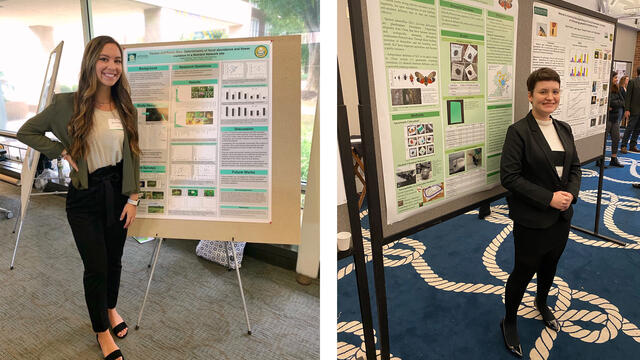McDaniel seniors, alumni, and faculty present at the Entomology 2020 Virtual Meeting
McDaniel seniors Kaitlin Murphy and Anna Kuhn are presenting at the Entomological Society of America’s Entomology 2020 Virtual Meeting with presentations available to be viewed Nov. 11 through Nov. 25. Alumnae Jessica Wyatt ’20 and Suji Kim ’20 also participated as presenters for the event with Holly Martinson, assistant professor of Biology. The meeting features livestream sessions and symposia on Nov. 16, in addition to on-demand symposia, student competition, and 10-minute presentations, posters, and infographics.
